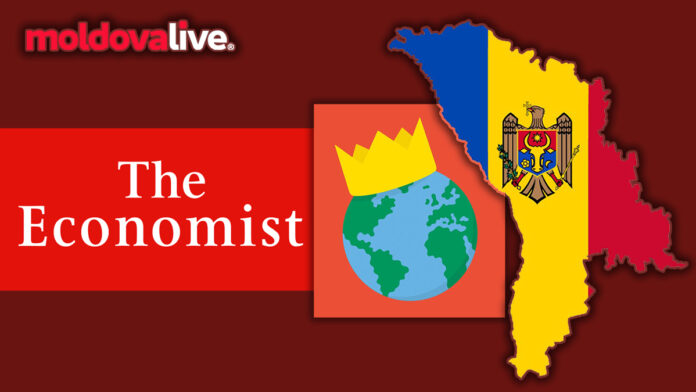In a year marked by wars and authoritarian drifts, Ukraine and the Republic of Moldova have once again been considered by The Economist magazine to be designated as the “country of the year 2023.” Ultimately, the journalists’ choice fell on a country that demonstrated winning elections without populist approaches, but rather with tough and sensitive economic reforms.
“Historians will not look back on 2023 as a happy year for humanity. Wars have erupted, autocratic regimes have been established, and in many countries, powerful individuals have violated laws and restricted freedoms. This is the grim backdrop of our annual ‘country of the year’ award. If our award were for the resilience of ordinary people in the face of horror, there would be plenty of candidates, from Palestinians and Israelis in their bitter conflict to Sudanese fleeing as their country implodes. However, since we began designating the country of the year in 2013, we have sought to recognize something different: the place that has improved the most,” explains The Economist.
“The search for a bright spot in a dark world has led some of our staff to despair and suggest Barbie Land, the fictitious pink utopia from a Hollywood blockbuster,” the publication notes with humor. “But in real life, there are two sets of countries that deserve recognition in 2023,” states The Economist.
Moldova and Ukraine Resist Intimidation from Autocratic Neighbors
The first category refers to “places that have resisted intimidation from autocratic neighbors,” and here, the publication includes Ukraine – the country awarded last year – and Moldova, which was designated as the “Country of the Year” in 2021.
Resilience in the Face of Challenges
Both Moldova and Ukraine have showcased resilience in the face of external pressures and have been recognized for their efforts in navigating challenges and pursuing positive changes. The Economist emphasizes that these countries have stood strong against intimidation tactics from neighboring autocratic regimes.
As the world grapples with various crises, the acknowledgment from The Economist underscores the importance of recognizing nations that have demonstrated progress, resilience, and a commitment to positive transformations, even amid global adversity.
Countries Defending Democracy at Home
The second group of countries considered consists of those that defended democracy or liberal values at home, and here, The Economist mentions “Liberia, a fragile and war-torn country that has successfully undergone a peaceful transfer of power. Similarly, East Timor has maintained its reputation for respecting human rights and a free press. In some medium-sized countries, such as Thailand and Turkey, hope has flickered as the opposition exerted strong pressure to oust autocratic regimes, but these regimes have persisted following elections tilted in their favor.”


